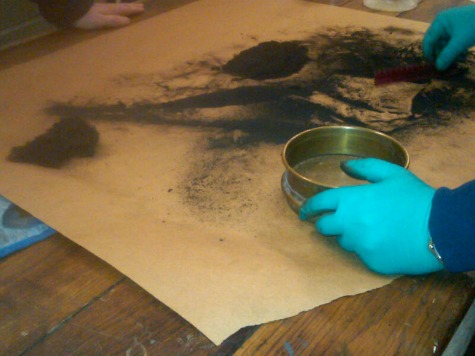
After reports that the Boston Marathon terrorists had used black powder for the explosive component of their pressure cooker bombs, Sen. Frank Lautenberg (D-NJ) proposed major changes to federal laws regulating loose gun powder and explosives.
On April 23, Lautenberg introduced S. 792, the Explosive Materials Background Check Act. Originally, the Senator submitted the bill as a shell bill–meaning it was not fully written–but this month he has finally submitted the full text of his bill.
An analysis of the text reveals profound changes to current law. Lautenberg’s changes in the explosives law would seriously hamper history reenactor hobbyists, black powder hunters, sportsmen, target shooters, and anyone that loads their own ammo with modern smokeless gun powder or the older style black powder.
One change would require those that want to buy and store either smokeless powder or black powder to get a new license–at a rate of $50 every three years–to allow them to do so. The bill also says that they will only be allowed to have “limited” supplies but does not seem to say what amount would exceed those limits.
Companies making pre-made ammunition are not required to obtain these licenses for now.
The bill also redefines what “manufacturer” of explosives means. The original laws defines “manufacturer” as someone who is making explosives (cartridges, etc.) for sale. That commercial aspect of the law is struck out in the new bill. If Lautenberg’s anti-explosives bill passes, anyone that hand loads cartridges for their own use or anyone that uses black powder firearms for hunting, sporting, or hobby use will now be classified as “manufacturers.”
This will also impinge on those that use Tannerite explosives for sporting purposes. This substance is manufactured as two separate powders and is legally sold over the counter because neither component is explosive by itself. Mixing these two inert chemicals together without a new explosives license, however, will likely be illegal.
Lautenberg’s bill will also expand a ban of sale to more people. The new bill, for instance, will make it illegal to sell black or smokeless powder to anyone that has had a restraining order taken out against him.
The new bill also turns the current “shall issue” practice into a “may issue” rule. In other words, the new bill would give authorities the right to deny any citizen the right to buy, store and own loose gun powder or explosives and the government doesn’t even have to supply any reason why the citizen is being denied. Nor will the government have to provide a means of redress. Once you are denied, that is it forever.
The bill does not seem to affect fireworks dealers.
Certainly, this new level of licensing will make it more costly for merchants to sell loose powder and will likely cause many that already may have low sales volume to cease selling such items. This will make it harder for gun owners to find supplies.
These rules violate the Second Amendment in spirit by making it harder for citizens to have the gun powder they need to exercise their rights to self-protection. Founding father Thomas Jefferson foresaw this line of attack against our rights and noted that these sorts of restrictions are illicit.
In his 1792 report on the Navigation of the Mississippi (ME 3:180), Jefferson wrote, “It is a principle that the right to a thing gives a right to the means without which it could not be used, that is to say, that the means follow their end.”
If gun owners do not have the means–in this case the gun powder–to make their firearms work, then they are necessarily being denied the capability to exercise their Second Amendment rights.

COMMENTS
Please let us know if you're having issues with commenting.